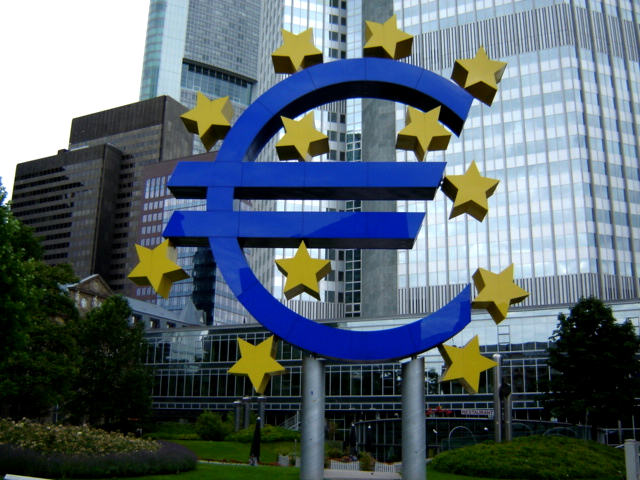The Council of the European Central Bank (ECB) meets on the upcoming Thursday. Despite explicit criticism especially from Germany, no one should expect higher interest rates in the medium term.
What Is the Effect of a Prime Rate of 0.00 Percent?
The impact on the people is certain: Saving is not attractive anymore. Despite the moderate inflation, deposits will become less valuable each month. A current poll by the German banking federation shows that 55% of the Germans are really angry about the low interest rates, while 70% do not intend to alter their savings behavior. Thus solid old age benefits are in danger, because life insurance companies and pension funds could not realize safe profits. Primarily low interest rates hurt people who deposit their savings on savings accounts and do not have treasured real estate which will probably rise in value. Hence, low interest rates foster inequality. While competition between banks is fierce in Germany, some business cases would not survive. The resulting higher activity fees will effect especially those who are not willing to do online banking and use paper-based payments instead.
The Hypocritical Federal Government
Right now also German Finance Minister Wolfgang Schäuble more or less hesitantly criticises the low interest rate policy of the ECB. But this is only one part of the truth. Actually, the Finance Minister uses what he criticises: the black zero, i.e. a balanced budget. Hence a balanced federal budget is only a collateral benefit resulting from low interest rate policy and sputtering tax revenues. A solid budgetary policy looks different. The federal government should also regard the low and zero interest rate policy of the ECB as exceptional. A sustainable budgetary policy would be to use the historical low federal interest expenditures to prepare the federal budget for future challenges. Instead the budgetary sit-down is used for new expenditures which do not foster economic growth.
Independent ECB?
The independency of the ECB was an absolute prerequisite for Germany to create a monetary union. Ehe institutional independency is important. But the federal government should officially put pressure on the ECB to change the interest rate policy. After all the preservation of the stability is very important for millions of savers. It is utterly important to strengthen the structure of the ECB.
The main problem of the debate about the independency of the ECB is a currency area where important economic figures such as growth, unemployment, indebtedness and inflation of the individual member states are very different. Thus it is not easy to find a common accepted and for every country beneficial prime rate. Right now permanent low interest rates are a great help for many member countries and therefore are enforced by these countries within the ECB.
Germany holds 27% of the share capital of the ECB and bears the highest risk. However, due to the missing voting weight the German vote counts the same as Malta’s. From 2015 on the German Bundesbank has no vote in every fifth meeting of the ECB council due to the rotation principle. Hence the position of the Bundesbank within the ECB council should be strengthened. Regarding extraordinary decisions the Bundesbank and other big central banks should have a veto – similar to the European stability mechanism.
The ECB Shot Its Wad…
Besides the reduction of the prime rate to zero the ECB bought more than 700 billions of securities from commercial banks. But the purchase of securities and government bonds as well as the extreme interest rate reductions did not create sustainable growth. Indeed, the finance costs for corporate business have been reduced by the expansionary monetary policy but the companies did not invest significantly more. Above all, the ECB could not react to an economic downturn with lower interest rates. The ECB shot its wad. If a downswing occurs, negative interest rates could happen which would strike each saver sometime.
What Has to Be Done?
The interest rates should rise incrementally again. Thus the allocation and signal function of interest rates would be restored and markets could deliver reliable signs how stable is an economic policy as well as which investments are profitable and which are not. If interest rates increase again, pensions funds and life insurance could gain stability and saving becomes more attractive. The ECB has given leeway to some countries with its monetary policy for structural reforms and a balanced budget. While Spain, Portugal, Ireland and Cyprus used it in a smart way, France, Greece, and Italy did not. The opportunity has been there, but now it is time to leave the expansionary monetary policy.



